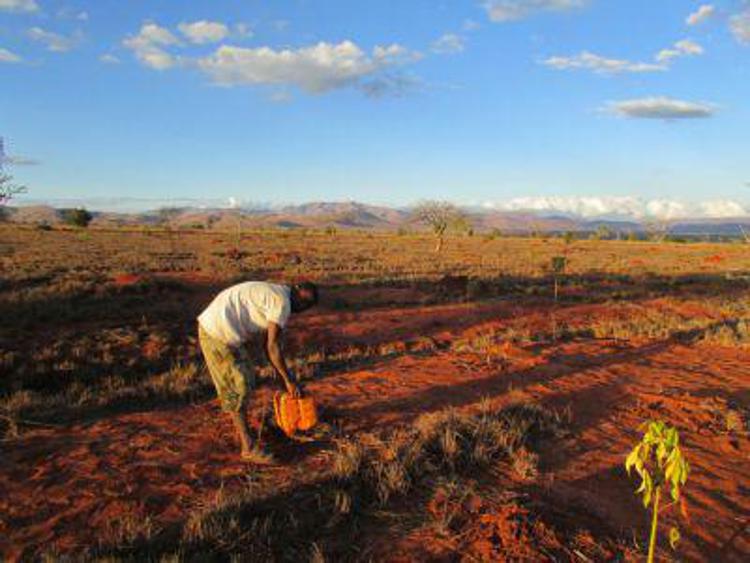

As crucial UN climate talks get underway in Glasgow, over 1.1 million people have been suffering acute hunger in southern Madagascar while 14,000 there face famine, the World Food Programme warned on Tuesday, calling for 69 million dollars of emergency funds.
The number of people living in famine-like conditions is likely to double by the end of December, as climate-induced drought shows no sign of abating and yet another harsh year of worsening hunger lies ahead, WFP stated.
"The changing climate has meant that many families who were able to live off the land 15 years ago have now fallen into severe hunger," said Menghestab Haile, WFP regional director for Southern Africa.
"Families are scavenging for survival and many are living only on the food assistance they receive," Haile continued.
An eight-month-old baby died from an accumulation of cactus seeds in his stomach, Haile learned from the child's mother.
"The face of hunger in Southern Madagascar is horrific,” Haile said.
The drought has left starving families resorting to eating locusts, wild leaves and cactus leaves - which are usually fed to cattle - in order to survive, according to the UN agency.
Vulnerable children are bearing the brunt of the crisis with malnutrition in under-fives expected to quadruple, crossing the half million mark by April 2022, WFP said.
"The number of malnourished children coming to health centres in Southern Madagascar has doubled compared to this time last year. Many of them are too weak to laugh or cry, let alone play and learn,” said Anna Horner, WFP’s chief of nutrition innovative financing, who recently visited.
“The physical and mental damage to children due to malnutrition can be irreversible. It is heart-wrenching to see so many young minds and bodies unnecessarily suffering from hunger and malnutrition.”
Amid the hottest decade on record, Madagascar has suffered from exceptionally high temperatures, a lack of rain and unexpected sandstorms that have covered fields, leading to wilted crops and below-average harvests, said WFP.
By April this year, drought had hit 70 per cent of the Grand Sud region, causing food production to slump to just one-third of the average for the last five-years. Families will not be able to sow their fields at the start of the upcoming planting season, jeopardising their access to food and to an income.
Adding to the already dire situation, a recent locust infestation is expected to ravage an estimated 400,000 hectares of land, WFP said.
WFP has been aiding some 700,000 people monthly and urgently needs 69 million dollars over the next six months to be able to scale up its response to the climate-induced hunger crisis, said the agency.
Current assistance includes emergency life-saving food and supplementary nutrition products for pregnant and nursing women and children.
WFP and Madagascar's government are implementing long-term resilience building programmes in south Madagascar that help communities adapt to the changing climate. These activities include access to water, reforestation, sand dune stabilization and economic support such as micro-insurance schemes in case of crop failure.
In September, 3,500 households received a payout of 100 dollars each to compensate losses from the failed maize crop, which helped them sustain themselves, WFP noted.